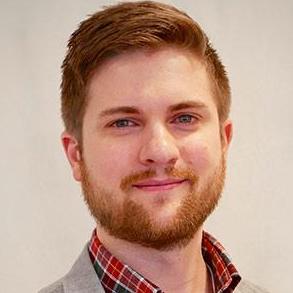
Yes, the world is in the midst of a climate crisis, but EDF is showcasing these young leaders who offer us optimism.
As a Cruise Director for an expedition travel company in the Arctic and Antarctic, Meghan Kelly often found herself in conversations with locals about the receding coastline. She heard how decreasing sea ice is diminishing traditional hunting grounds, along with the passages between one community and the next in the Arctic. For the families who have been there for generations, surviving means adapting to a warmer climate.
To many of us, these remote locations may seem far away. But stories like this are happening much closer to home. Climate change is altering, and in some cases destroying, the environments we grew up in.
It’s easy to feel hopeless when hearing these stories. But here’s one reason why I’m optimistic about the future of our planet.
Last week, I met 120 graduate students, from across the U.S. and China who are dedicating their careers to solving the climate crisis. I was blown away by the high-caliber talent I saw. This group, members of the 2019 EDF Climate Corps fellowship, are using their unique personal experiences and educational backgrounds to tackle climate change in new, innovative ways.
Let me introduce you to some these talented emerging leaders, and I hope that you, too, will find hope in knowing that the future of our planet lies in their hands.
Yalun Feng
Trying to visualize the environmental impact that millions of people can have on our planet might seem abstract. But for Yalun Feng, growing up in Wuhan – one of the most populous cities in central China – meant seeing waste and pollution on a daily basis. In September of 2016, Yalun co-founded a social enterprise, Leaves Plates Company, that sells biodegradable plates and flatware made from leaves, a South Asian tradition.
The plates are sold to restaurants, food trucks and university dining services in the U.S. as a solution to reducing plastic use. The products are 100% biodegradable, extremely sturdy and can be manufactured with a carbon footprint that’s much lower than traditional plastic products. Beyond having a reduced impact on the environment, the company creates jobs, providing for people – especially women – in destitute areas with disposable incomes and greater economic independence.
Anneliese Gegenheimer
Anneliese Gegenheimer spent seven years with IBM, first in the company’s Global Business Services, then in IBM’s Watson Financial Service department. She created learning programs to help advance the company’s application of Artificial Intelligence, and implemented processes for optimizing manufacturing supply chains. But for five of those seven years, Anneliese was also acting as founder and director of the Chicago Student Invention Convention – a student invention program that empowers students K-8 to creatively solve problems.
Anneliese formed partnerships, developed teacher trainings and curriculums, recruited volunteers and mentors, and organized a city-wide competition. In those five years, the program served over 8,000 students and has since become integrated into Chicago’s STEM programs. The flexible curriculum gives students the opportunity to turn innovative ideas into innovative products, like ChargeAir – a portable wind turbine that can be placed on an electric car to generate power as the car drives.
Robert Ddamulira
Robert Ddamulira spent the last nine years working for the World Wide Fund for Nature (WWF), based in Uganda. He coordinated with 11 WWF offices across the continent to solve a range of socio-economic, environmental and energy issues facing the population.
Using his background in energy – specifically oil, hydropower, bioenergy and solar – Robert designed and led an 11-country rights-based sustainable energy program. The program helped get countries like Uganda, Kenya, Zambia, Madagascar, DRC and Tanzania to work together to enable 1.2 million people to get basic access to modern energy solutions for services like lighting and cooking. He also influenced national, regional and international energy policy around modern, energy access, increasing the use of renewable energy and reducing the environmental impact of large scale energy developments, such as hydropower and oil and gas.
Yalun, Anneliese, Robert, Meghan and the rest of their generation make me hopeful about the future of our planet.
Previously posted on EDF's blog and the 3BL Media newsroom.
Image credit: Jesse Orrico/Unsplash

As Director of EDF Climate Corps, Scott Wood builds and manages strategic partnerships that improve corporate energy management and advance the clean energy economy across the U.S. and internationally.














